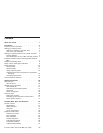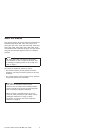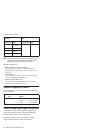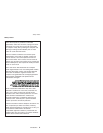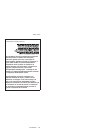v The HMM will have the 4-digit MT and 3-digit CTO
model only (Example: 1829-CTO). Again, CMVs are
custom models and are not found in the HMM.
General Announce Variant (GAV)
This
is a standard model (fixed configuration). GAVs are
announced and offered to all customers. The MTM portion
of the machine label is a 4-digit MT and 3-digit model,
where model = a “fixed part number”, not “CTO” (Example:
1829-F1U). Also, PEW, eSupport, and the HMM will list
these products under the same fixed model number.
FRU identification for CTO, CMV, and
GAV products
There are three information resources to identify which
FRUs are used to support CTO, CMV, and GAV products.
These sources are PEW, eSupport, and the HMM.
Using PEW
v PEW is the primary source for identifying FRU part
numbers and FRU descriptions for the key commodities
for CTO, CMV and GAV products at a MT - serial
number level. An example of key commodities are hard
disk drives, system boards, microprocessors, Liquid
Crystal Displays (LCDs), and memory.
v Remember, All CTO and CMV products are loaded in
PEW under the 4-digit MT and 3-digit model, where
model = “CTO” (Example: 1829-CTO). GAVs are loaded
in PEW under the 4-digit MT and 3-digit model, where
model = a “fixed part number”, not “CTO” (Example:
1829-F1U).
v PEW can be accessed at the following Web site:
http://w3-3.ibm.com/pc/entitle
Click on MACHINE LOOKUP, followed by WARRANTY
INFORMATION. Input the MT and the Serial number
and the list of key commodities will be returned in the
PEW record under COMPONENT INFORMATION.
v Business Partners using Eclaim will access PEW when
performing Entitlement Lookup. Business Partners will
enter Loc ID, MT and Serial, and the key commodities
will be returned in the Eclaim record under SYSTEM
DETAILS.
v Authorized IBM Business Partners can access Eclaim at
the following Web site: https://wca.eclaim.com
Using eSupport
For Key Commodities (Examples - hard disk drive,
system board, microprocessor, LCD, and memory)
Important service information
Introduction 5



